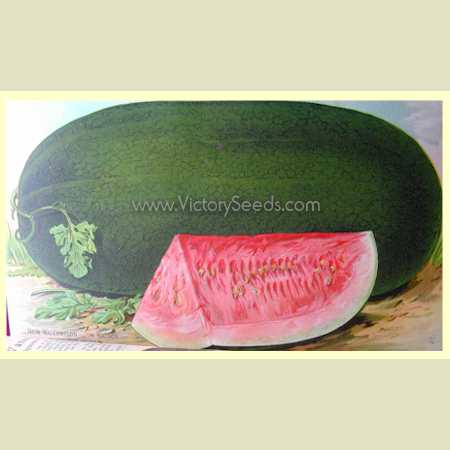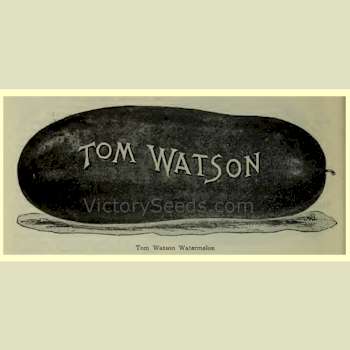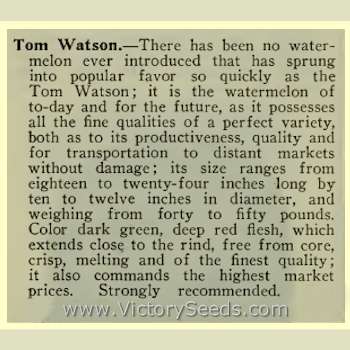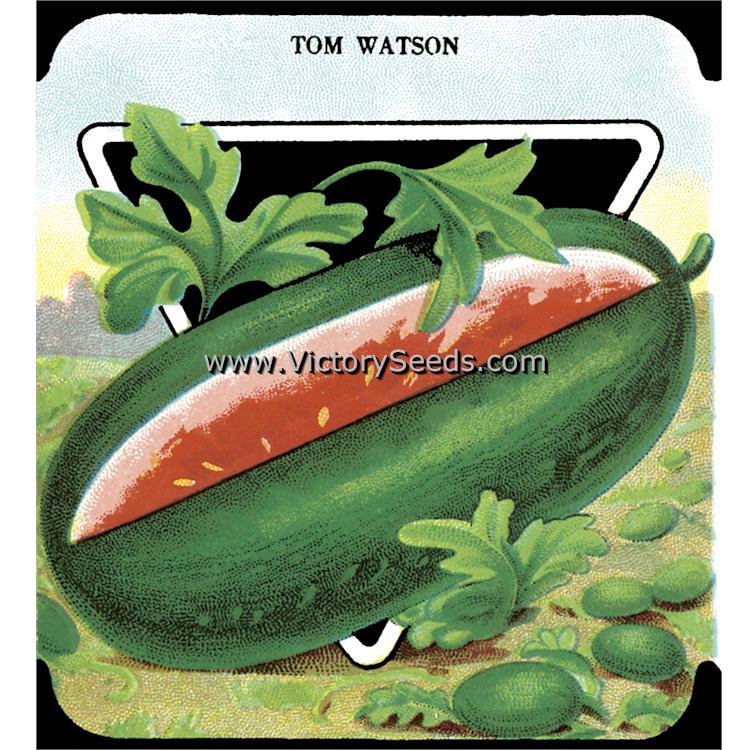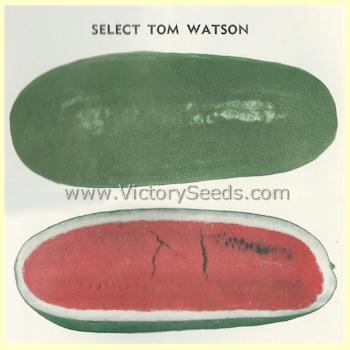Tom Watson Watermelon
Tom Watson Watermelon
Couldn't load pickup availability
95 days — The fruit of 'Tom Watson' watermelons are large, reaching up to forty pounds, and have sweet, crisp, dark-red flesh. The tough rind makes it a good shipping melon and its thickness lends it to be suitable for pickle recipes. When it was more common, it was once very popular with home gardeners as well as market growers.
'Tom Watson', named after the Georgian newspaper editor, attorney and politician, Thomas E. Watson, is an old heirloom variety that was originally introduced into the commercial seed trade by William A. Watson of Thomson, Georgia in 1902.[1] Mr. Watson noted:
Each packet contains two grams, which is approximately 18 to 20 seeds.
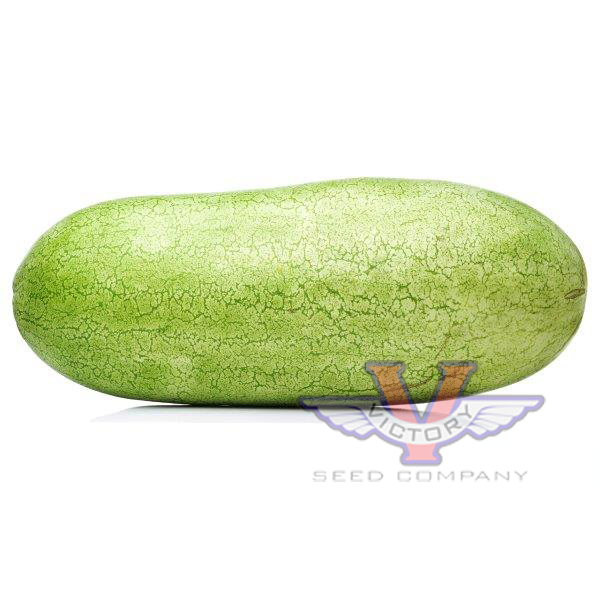
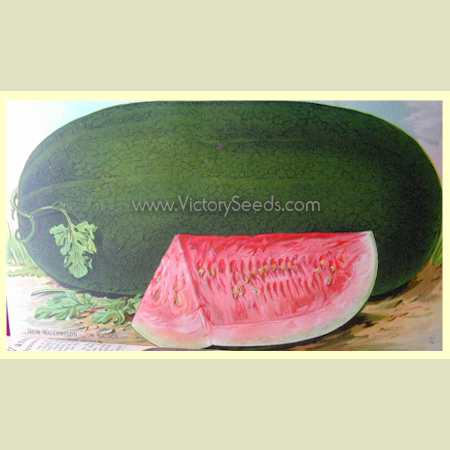
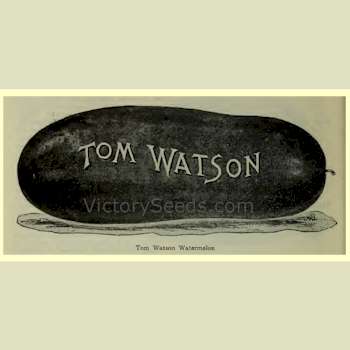
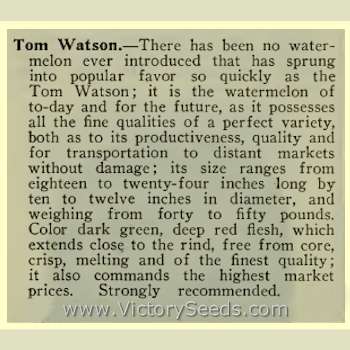
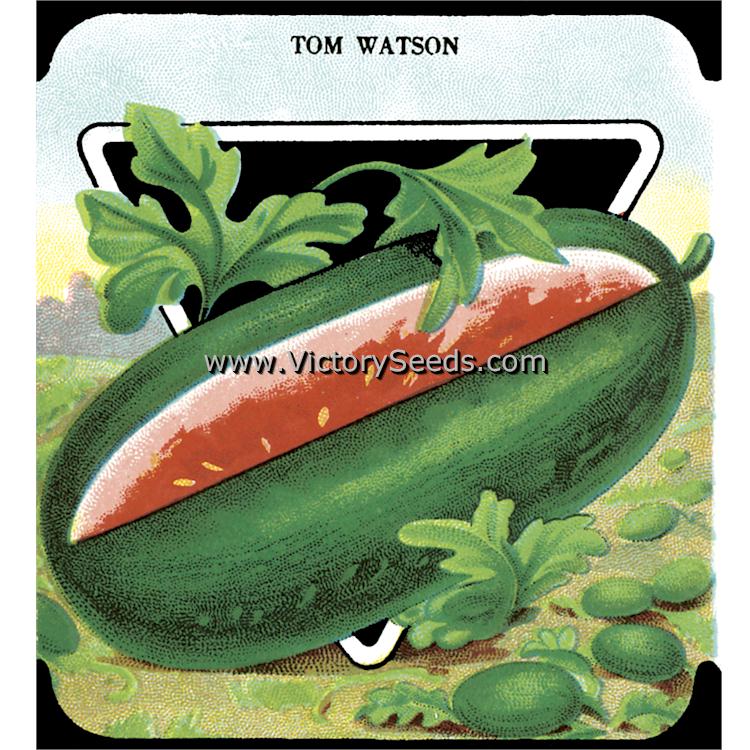
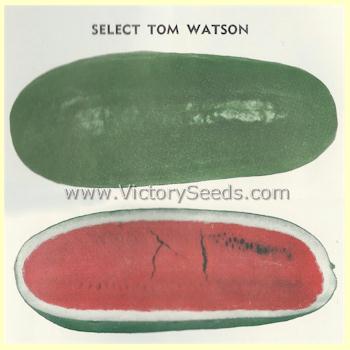

Outdoors, plant three to four seeds, ½ inch deep, in hills spaced four to six feet apart. Transplant or thin to two plants per hill. Young plants are cold sensitive and some cover protection at nights may be required. Mulch or cultivate to control weeds. Information References:
- Newspaper Advertisement, The Jeffersonian, Thomson, Georgia, 1911.
- Correspondence and conversation with Dexter Rhodes, Grounds Manager for the Watson-Brown Foundation, Thomson, Georgia. 2003.
- "Catalog," William A. Watson's Sons: Original Propagators of the Tom Watson Watermelon, Thomson, Georgia, 1950.
Explore our vegetable collections:
[ Artichokes | Asparagus | Beans | Beets | Broccoli | Sorghums | Brussels Sprouts | Cabbage | Cantaloupe | Carrots | Cauliflower | Celery | Collard Greens | Corn | Cucumber | Eggplant | Endives | Gourds | Kale | Kohlrabi | Leeks | Lettuce | Mesclun Mix | Mustard Greens | Okra | Onions | Parsley | Edible Pod Peas | Garden Peas | South Peas | Hot Peppers | Mild Peppers | Pumpkins | Radishes | Rapini | Rhubarb | Salad Greens | Salsify | Summer Squash | Winter Squash | Swiss Chard | Tomatillo | Tomatoes | Dwarf Tomato Project | Turnips | Watermelons ]


